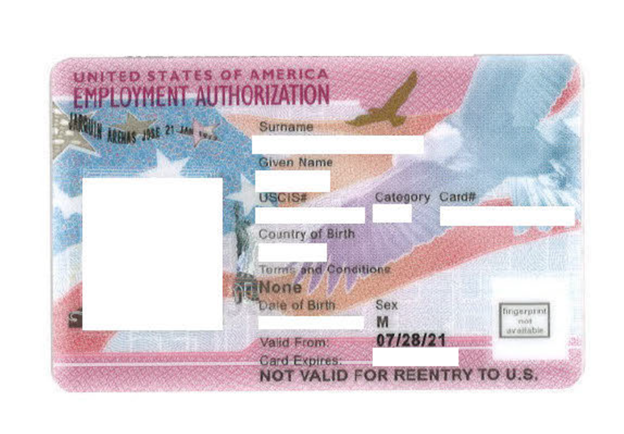
Quicker Work Permits for U Nonimmigrant (U Visa) Petitioners and Qualifying Family Members
On June 14, 2021, USCIS issued a policy alert that will give principal petitioners (the main applicant) and qualifying family members with pending and valid U visa petitions work permits. To find out what a U visa is, you can go to my blog post here. The terms U nonimmigrant status and U visa are often used interchangeably but generally refer to the same immigration benefit. For purposes of this post, I will use the term U visa since that is the term that most people are familiar with.
For anyone who has applied for a U visa, there is a huge backlog. I remember when I first started working on U visa cases in 2009, cases usually took less than a year. Now, it’s taking about 60.5 – 61 months as of the most recent update! The reason for this is because only 10,000 U visas are issued each year beginning each October 1st, and USCIS receives tens of thousands of U visa petitions over that yearly cap each year. Since there aren’t enough U visas to give out in a timely manner, petitions that can be approved but can’t officially be approved yet are put on a waiting list. In those situations, USCIS would grant what’s called “deferred action,” which allowed the petitioners and their qualifying family members to get a 2-year work permit while they were waiting for the official U visa approval and the 4-year work permit that comes with that approval. However, getting to the point of getting deferred action has also taken several years. This new policy change is supposed to change that.
Under this new policy, USCIS will make what they call “bona fide determinations (BFD)” and provide deferred action allowing for petitioners and their qualifying family members to have work permits assuming that they meet certain standards. These work permits would be issued with a 4-year validity date. According to this new BFD standard, USCIS will issue work permits in the following situations:
1. The principal petitioner properly filed Form I-918, including Form I-918B U Nonimmigrant Status Certification;
2. The principal petitioner properly filed a personal statement from the petitioner describing the facts of the victimization; and
3. The result of the principal petitioner’s biometrics (fingerprints) has been received.
The main difference between these BFD work permits versus the work permits that were issued in the past based on deferred action is that petitioners and their qualifying family members may be able to receive work permits much earlier in the U visa process under this new policy. As of the writing date of this post, since this policy is still new, we are still waiting on further guidance and clarification about how they will implement issuing these work permits, and how long it will take for them to be issued. This new policy will apply to all U visa petitions that have been submitted in the past and to all U visa petitions that will be submitted.




